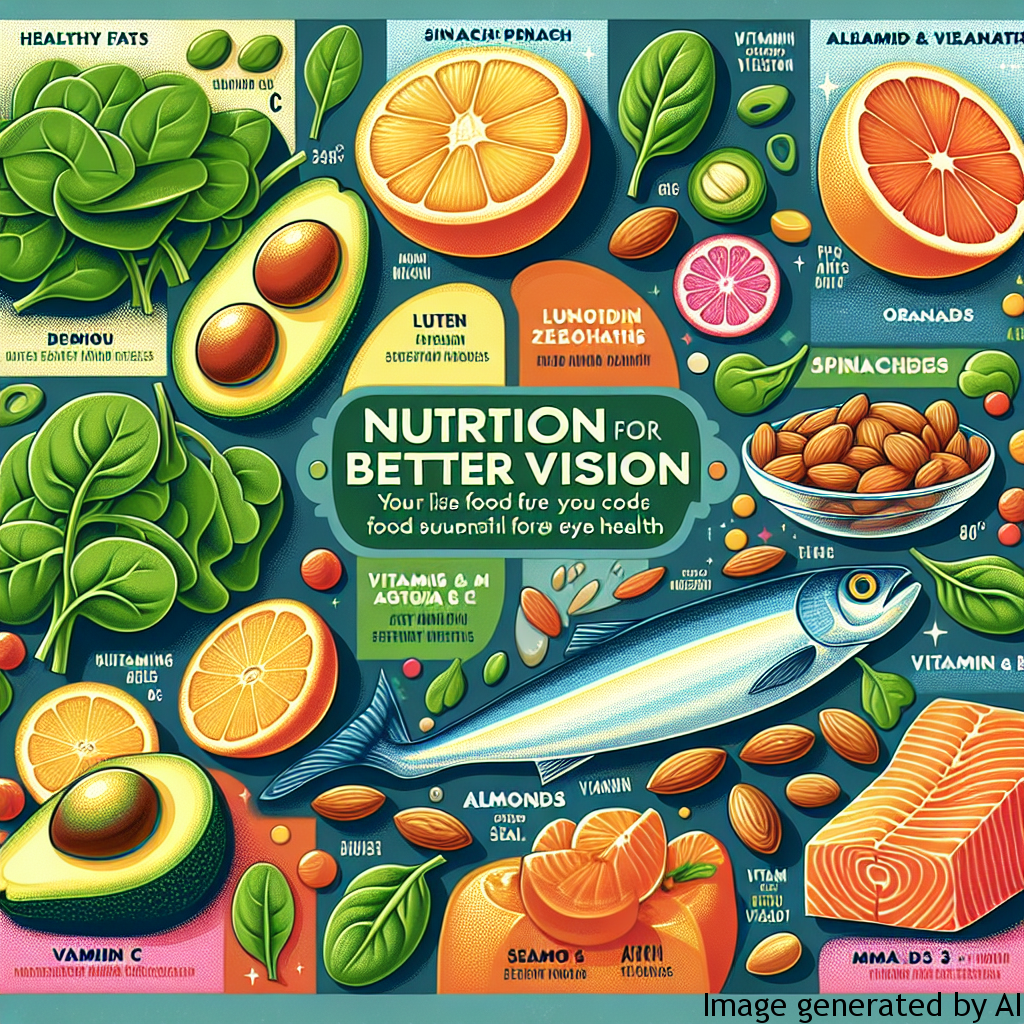Introduction
Your diet plays a significant role in determining the health of your vision. Consuming vitamins, minerals, and other nutrients can assist in preventing or slowing down certain eye illnesses. On the other hand, a diet lacking essential nutrients can contribute to vision loss. With an increasing number of people suffering from visual impairment, understanding the role of nutrition in maintaining good eye health is becoming more important.
Significance of Certain Nutrients for Eye Health
Vitamins
Vitamins are essential for overall wellness, and they also have significant benefits for eye health. Vitamin A, for example, is beneficial in maintaining the health of the retina. It is responsible for maintaining clear vision and aids in seeing in low light. Vitamin C and E, on the other hand, act as powerful antioxidants and are believed to protect the eyes against damaging free radicals.
Minerals
Many minerals are vital for eye health as well. Zinc, for example, plays a crucial role in bringing vitamin A from the liver to the retina in order to produce melanin, a protective pigment in the eyes.
Omega-3 Fatty Acids
Found primarily in cold-water fish, such as salmon and tuna, omega-3 fatty acids help maintain cell health and integrity. These are crucial for retinal function and visual development.
Foods that Advance Eye Health
Certain foods are rich sources of the aforementioned nutrients; amending your diet to include these can greatly improve eye health. Consumption of leafy green vegetables, eggs, whole grains, and citrus fruits which are all high in vitamins and antioxidants, is beneficial. Seafood, especially oily fish, provides adequate Omega-3 fatty acids required for good eye health.
Role of Hydration
Proper hydration is another major component of eye health. Drinking sufficient amounts of water can prevent dry eyes and keep the body and eyes hydrated.
Conclusion
In conclusion, your diet plays a crucial role in maintaining and enhancing your eye health. By ensuring that you consume a balance of vitamins, minerals, and omega-3 fatty acids, primarily through a diet rich in fruits, vegetables, lean proteins, and whole grains, you can contribute to the health of your eyes. Equally important is maintaining a good level of hydration. Besides a nutritious diet, regular eye check-ups are also necessary to monitor the health of your eyes and catch any potential problems early.

